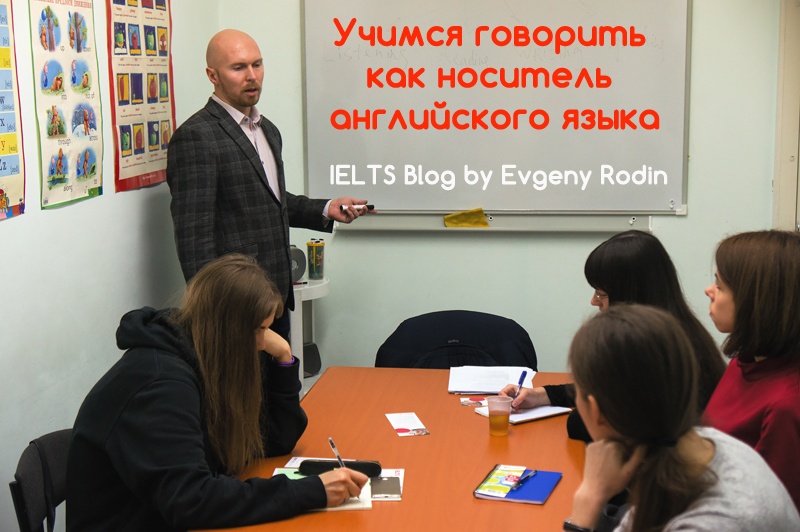IELTS EXAM: Учимся говорить как носитель английского языка
- 14.04.2018
- Автор блога: Евгений Родин
- Категория: IELTS exam

IELTS EXAM: Учимся говорить как носитель английского языка
Evgeny Rodin ‘How to Sound Like an English Native Speaker’
Apparently, the only way to sound like a native speaker of English is to imitate what the English say and how they say it. The best possible option would be to find some English person and to turn to them for help instead of relying on the BBC English programmes and Oxbridge dictionaries only.
Can you imagine that BBC pronunciation might sound a bit weird?
Actually, it does. Compare, for example, the “right” but hardly common pronunciation of the word «harassment» with the first syllable stressed with the widespread pronunciation of this word with the second syllable stressed
As has been shown, educated English native speakers stress the second vowel of this word. Not surprisingly, posh and sort of strange RP is not at all popular in the UK, though it’s still taught all over the world as the main English accent model. Sometimes students might sound strange if they pronounce words or phrases the way they are suggested by the English dictionaries.
For instance, “et cetera” or etc. shouldn’t be pronounced with “t” (here I would object to the Cambridge pronunciation) but should sound as “eksetera” which is much more natural.
As for grammar and vocabulary, there are certain things which can hardly be treated as mistakes by natives.
Let me name a few.
- The split infinitive(I would disagree with the site because such type of infinitives are not treated as a mistake and are widely used even by educated English speakers).
- The phrase “I’m good” sounds much better than “I’m well”. Maybe, it used to be a mistake, but it’s no more. Furthermore, the first variant is way more common today.
- “Love” instead of “like” in phrases like “I love my dog” or “I love ice-cream” shouldn’t be avoided, though it used to be a mistake.
- “That” instead of “who” in subordinate clauses won’t be a mistake either.
Of course, there are some very common mistakes which are still treated as mistakes (for example, the wrong use of the apostrophe or the use of “less” instead of “fewer”).
However, I can’t say it would be a great idea to correct the native speakers.
Let them use their language the way they like it.
So, I wish you, as usual, all the best in your studies.
Cheerio!
